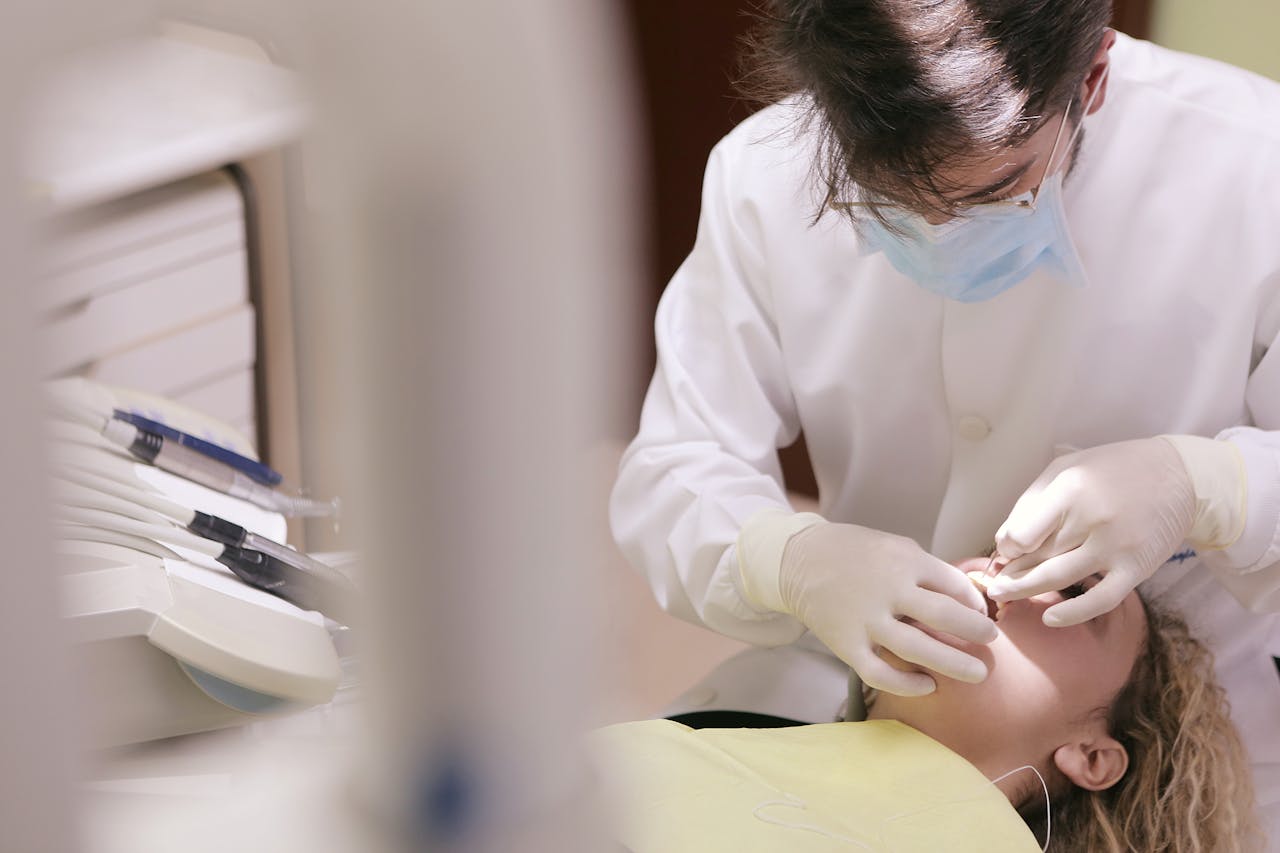Wisdom Teeth 101: A Comprehensive Guide to Symptoms, Removal, and Recovery
March 30, 2024
Understanding Wisdom Teeth:
Wisdom teeth typically start to appear during the ages of 17 to 25, often dubbed the "age of wisdom." Nevertheless, not everyone develops wisdom teeth, and those who do may encounter different levels of impaction. Impacted wisdom teeth arise when there is insufficient room in the jaw for them to fully emerge, resulting in a range of dental complications.Symptoms of Impacted Wisdom Teeth:
Impacted wisdoms can cause a range of symptoms. If you're wondering when to consider having your wisdom tooth removed, it might be a good idea if you have any of the following:Pain and Discomfort: Persistent pain or even intermittent pain in the back of the mouth, jaw, or surrounding teeth may indicate impaction.
Swelling and Redness: Swelling, tenderness, and redness in the gums around the affected area can signal an infection or inflammation caused by impacted wisdom teeth.
Difficulty Opening the Mouth: Impacted wisdom teeth may cause difficulty opening the mouth fully or chewing comfortably, leading to stiffness and discomfort.
Bad Breath: Accumulation of food debris and bacteria around impacted wisdom teeth can result in bad breath or a constant unpleasant taste in the mouth.
Tooth Crowding: Impacted wisdom teeth can exert pressure on the neighbouring teeth, causing them to shift or become misaligned.
If you experience any of these symptoms, it's essential to consult with a dentist or oral surgeon for an evaluation and appropriate treatment recommendations.
The Removal Process:
When impacted wisdom teeth cause persistent pain, discomfort, or dental issues, removal may be necessary to alleviate symptoms and prevent complications. The removal process usually follows these steps:Consultation and Evaluation: Your dentist will go through a comprehensive evaluation, which may involve X-rays, to evaluate the positioning of your wisdom teeth and ascertain whether removal is warranted.
Anesthesia: You will be administered local anesthesia to numb the targeted area, ensuring a painless experience throughout the extraction process.
Extraction: Depending on the positioning and state of the wisdom teeth, the extraction procedure may entail either simple extraction or surgical removal. Surgical extraction is usually necessary for impacted wisdom teeth that are partially or fully lodged within the jawbone.
Closure: After the extraction, the dentist or oral surgeon will stitch the surgical site closed to promote healing and prevent infection. Dissolvable sutures may be used, eliminating the need for a follow-up appointment to remove them.
Recovery: Following the procedure, you'll receive post-operative instructions to minimize discomfort and promote healing. This may include ice packs to reduce swelling, taking prescribed pain medication, avoiding strenuous activities, and following a soft diet for the first few days.
Recovery Tips:
Recovery after removing wisdom teeth typically takes about a week, during which you may experience some discomfort and swelling. Here are some tips to help facilitate a smooth recovery:Follow Post-Operative Instructions: Adhere to any instructions provided by your dentist or oral surgeon, including guidelines for pain management, oral hygiene, and dietary restrictions.
Manage Discomfort: Take prescribed pain medication as directed to alleviate discomfort and reduce swelling. Pain relievers can also help manage pain.
Apply Ice Packs: Putting ice packs on the cheeks outside the surgical area for 20 minutes at a time to reduce swelling and discomfort during the first 24 to 48 hours after surgery.
Maintain Oral Hygiene: Continue practicing gentle tooth brushing and rinse your mouth with warm saltwater to maintain cleanliness at the surgical site and facilitate the healing process. Refrain from vigorous rinsing or employing mouthwash containing alcohol, as these actions may provoke irritation at the extraction site.
Eat Soft Foods: Stick to a soft diet consisting of easy-to-chew foods such as yogurt, mashed potatoes, soup, and smoothies during the initial days of recovery. Avoid foods that may hurt the surgical site, such as anything too hard, crunchy, or spicy.
Stay Hydrated: Drink plenty of fluids to stay hydrated and aid in the healing process. Opt for lukewarm or cold beverages and avoid using straws, as sucking can dislodge blood clots and delay healing.
Rest and Relaxation: Allocate sufficient time for rest and recuperation after wisdom teeth removal. Refrain from engaging in vigorous activities, heavy lifting, or vigorous exercise for at least the initial few days to alleviate discomfort and lower the likelihood of complications.
Attend Follow-Up Appointments: Attend any scheduled follow-up appointments with your dentist or oral surgeon to oversee proper healing and track your progress. If you encounter persistent pain, swelling, or any other worrisome symptoms during recovery, promptly reach out to your healthcare provider for assistance.
In conclusion, wisdom teeth removal serves as a prevalent dental procedure aimed at mitigating symptoms linked with impacted wisdom teeth and averting complications. By familiarizing yourself with the signs of impaction, the removal procedure, and recovery strategies, you can approach the process confidently and ensure a smooth recuperation. Should you encounter persistent pain, swelling, or difficulty in mouth opening, it's imperative to promptly seek dental attention for an evaluation. Your dentist, or oral surgeon will assess your wisdom teeth and recommend suitable treatment options tailored to your specific needs.
It is important to note that wisdom teeth removal is a routine procedure carried out by skilled dental practitioners. Adhering to post-operative instructions, maintaining good oral hygiene, and employing methods to manage discomfort during recovery can help minimize complications and expedite healing. Should you have any apprehensions or inquiries regarding wisdom teeth removal, don't hesitate to discuss them with your dentist or oral surgeon. They can offer personalised guidance and address any concerns, ensuring you feel informed and supported throughout the process.
By comprehending the process and actively promoting healing, you can navigate wisdom teeth removal confidently and attain optimal oral well-being.

![About [span]me[/span]](https://blogger.googleusercontent.com/img/b/R29vZ2xl/AVvXsEg51YZA3uff_lGfAm2WPvaPtznUF0gsieSuVaBa_d4ueEQHmGAHJoO-6IjG2QhrHsB6TFxtBe7Kp7pgPhQ9JxDPFeWf9zlhWBpmioDCq_cgwCmfvXsb3Q935VBe0Bg1yrOJFakkvZK6XQ/s1600/profile7.png)





















![About [span]me[/span]](https://blogger.googleusercontent.com/img/b/R29vZ2xl/AVvXsEi0M_3kH8dItlAXTuIsv2fy6Vh66DmueOkq-Xb31dyGKOzuemaVtbrM_2rVWoIm3NFdwlpPEnezCBHeO6vHRn-aPne1M7U9EI4PUTUT6f0IyYR43irzt8-u23HGLtfqpBdheA-g6LhyQA/s608-Ic42/profile5.png)
0 comments
I'd love to hear your thoughts and comments! Come back soon :)